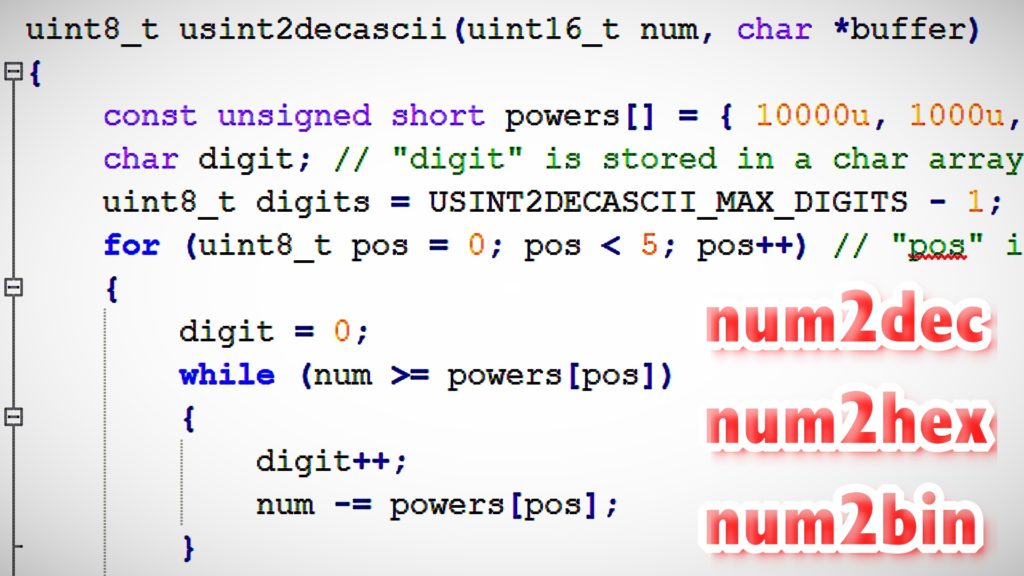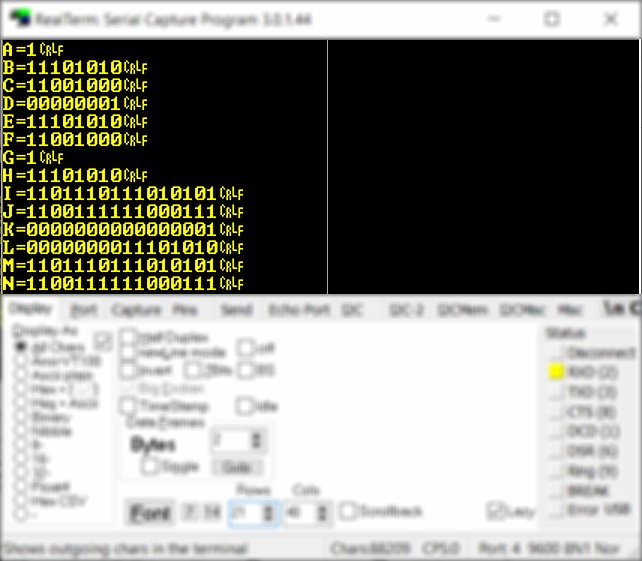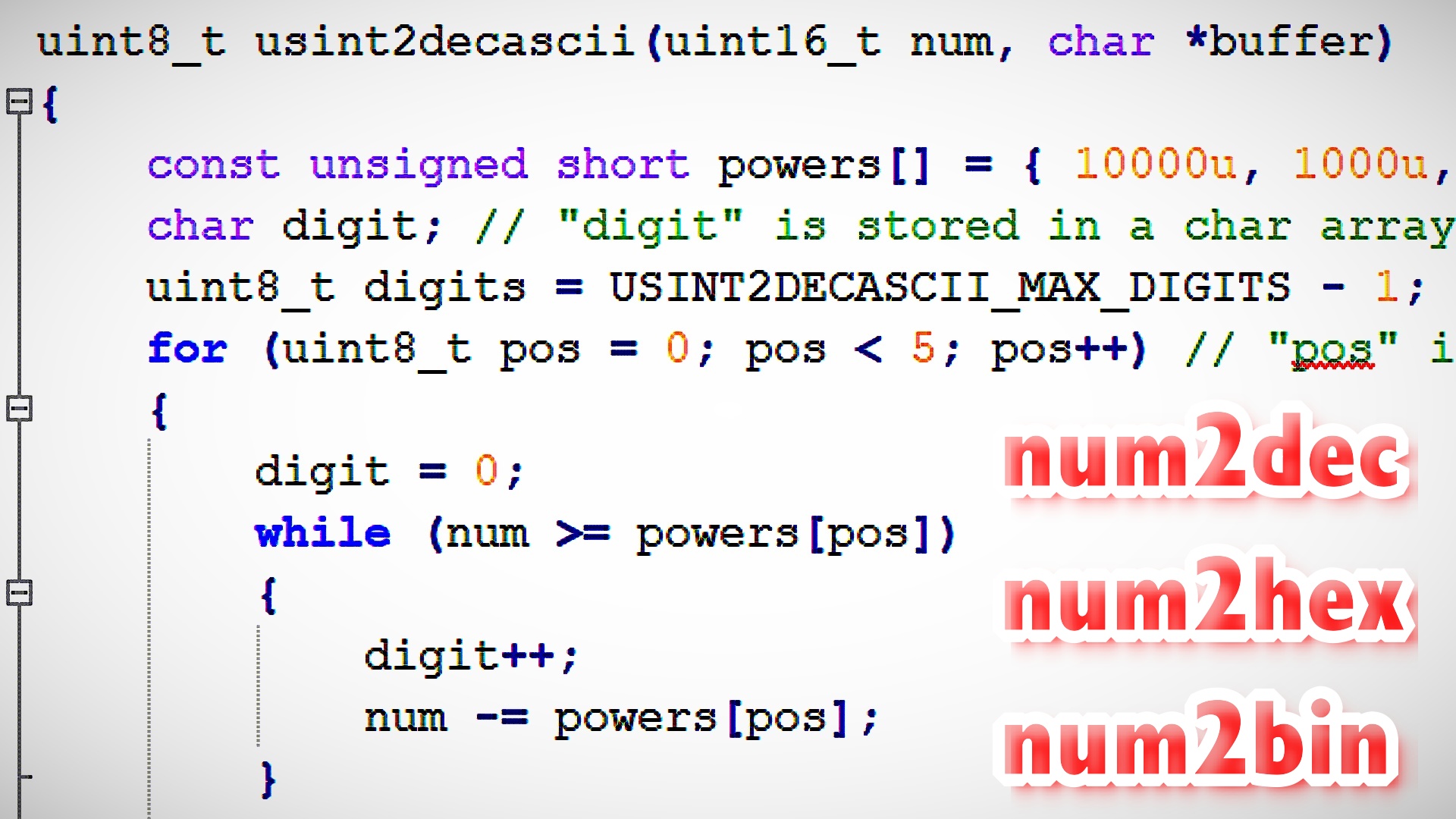
NUM2STR is a small library, part of the TinyAVRLib library, for converting numbers to text in three main formats: decimal, hexadecimal, and binary. I have been using it for several years in another library to print debugging information. The library is designed for ATtiny85 microcontrollers or similar, and the goal is to work with a minimum amount of memory for code and data.
Library size (approximately):
Program: 1074 bytes (13.1% Full) (.text + .data + .bootloader) Data: 12 bytes (2.3% Full) (.data + .bss + .noinit)
The library code can be found at: https://gitlab.com/tinusaur/tinyavrlib/
The main files are:
- tinyavrlib/num2str.h
- tinyavrlib/num2str.c
The main functions are:
- uint8_t usint2decascii(uint16_t, char *);
- uint8_t usint2hexascii(uint16_t, char *);
- uint8_t usint2binascii(uint16_t, char *);
How to use it
Two arguments must be given to the function: (1) the number to be converted; (2) a pointer to a buffer in which to write the result.
These functions are used in another library: OWOWOD – One-Wire / One-Way Output for Debugging, which is printing debugging information. There are few examples below.

Convert an integer to decimal with a sign:
char buffer[USINT2DECASCII_MAX_DIGITS + 2]; // One more byte for the sign.
buffer[0] = ' '; // Init the string.
buffer[USINT2DECASCII_MAX_DIGITS + 1] = '\0'; // Terminate the string.
uint8_t digits = usint2decascii((num < 0 ? -num : num), buffer + 1);
if (num < 0) buffer[digits] = '-';
owowod_print_string(buffer + digits + (num < 0 ? 0 : 1));
Sample result:
A=123
B=-19858
C=-901
Convert an integer to hexadecimal without a sign, filled with leading zeros:
char buffer[USINT2HEXASCII_MAX_DIGITS + 1];
buffer[USINT2HEXASCII_MAX_DIGITS] = '\0'; // Terminate the string.
usint2hexascii(num, buffer);
owowod_print_string(buffer + USINT2HEXASCII_MAX_DIGITS / 2);
Sample result:
D=04D2
E=1DD5
F=CFC7
Convert an integer to a binary without a sign, filled with leading zeros:
char buffer[USINT2BINASCII_MAX_DIGITS + 1];
buffer[USINT2BINASCII_MAX_DIGITS] = '\0'; // Terminate the string.
usint2binascii(num, buffer);
owowod_print_string(buffer);
Sample result:
K=0000000000000001
L=0000000011101010
M=1101110111010101
Other related information
Pages and blog posts about the NUM2STR library.
Information about the OWOWOD library: https://gitlab.com/tinusaur/owowod
The source code is available as open source software at GitLab at https://gitlab.com/tinusaur/tinyavrlib – our primary repository, but there is also a copy at GitHub at https://github.com/tinusaur/tinyavrlib.

